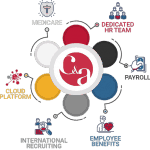By Melissa A. Winn
October 2, 2014
Once a heavily male-oriented field, the benefits business has not only embraced female brokers, but women have become an integral aspect of the industry and are changing it for the better, according to a panel of some of EBA’s inaugural group of Most Influential Women in Benefit Advising who were honored Tuesday at EBA’s Workplace Benefits Summit.
Rather than the benefits industry merely adjusting to accommodate female brokers, Christy Schwan, president of Stellarus Benefits in Brookfield, Wis., said she believes women are taking control and claiming their own role in the industry, including not being afraid to speak up, whether they agree or disagree, and understanding and appreciating their own confidence.
“Confidence comes from doing a good job with your clients and doing a great job with your employees,” she said.
See related slideshow: The Most Influential Women in Benefit Advising
Monica Digon, chief sales and marketing officer at the Tallahassee, Fla.-based FBMC Benefits Management, agreed, and added that it’s not only women who are changing the industry, it’s also the different cultures that are joining the workforce.
The benefits industry is “no longer dominated by one type of individual,” Digon said.
The demographic shift for advisers is also occurring to meet the demographic shifts in employers and clients, said Kristin Kahle, founder and CEO of the San Diego, Calif-based technology firm NavigateHCR.
“The buyer has changed. If you look at who was buying benefits in the past, it was always the CFO and, strategically, benefit advisers are told to sell plus-or-minus 10 years of your age,” Kahle said. “But if you look at the average buyer who is buying now, it’s usually a female who is around 34, 35, 36 years old.”
“It’s extremely important for women to move into leadership roles in our industry,” Digon said. “Females are making financial decisions in our homes and leadership has to be reflective of the consumer. That should be a priority for our industry.”
Being adaptable
In fact, as health care reform continues to change the landscape of the benefits industry as never before, women, who are often more adaptable and flexible, have a slight advantage, the panelists agreed.
“Women by nature are very adaptive and very perceptive because we not only have had to manage families, but other things, as well,” said Digon, adding that “our ability to be adaptive has helped us in the workforce right now that is experiencing a lot of legislative changes.”
“Women are great translators,” Schwan added. “I think that what [advisers] do is translate the complexities of the law. That’s one of our strengths. We’re educators and translators. Not that men don’t have that capability, but I think it’s sort of inherent in what women do. We want to make sure that we listen well and also are able to convey and answer back to our clients in a way that they can understand.”












